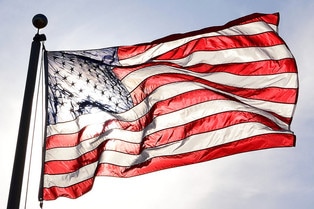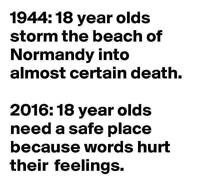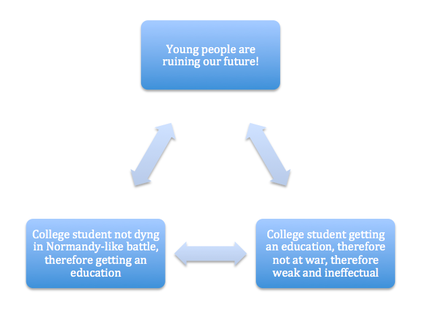Moore is trying to get to the bottom of how social systems cause human suffering, observing that the bulk of human conflict over the course of history has been over (1) maintaining social structures by which we establish norms, taboos, and rules of conduct, which imposes natural restrictions on everyday existence; (2) attempting to control those who threaten that social structure, from the individual to opposing foreign powers; and (3) imposing a new social order. People have always existed somewhere between accepting a certain amount of suffering or powerlessness in their social system, and accepting the short and long term costs and benefits of revolution. Moore generally refers to revolution as a bloody and oppressive sacrifice -- which is historically true -- but he also acknowledges that change can also happen peacefully, only if a citizen is able to cut the strands of his "web of beliefs, expectations, and sanctions that tie him to the existing regime" one by one.
Given my line of work, my mind is contextualizing Moore's theories through the lens of our incarceration system. The justice system is an extension of the state, by which our reigning social structure is enforced, and which has its own tyranny that we don't observe from outside its barbed walls.
The current system is dehumanizing
Before talking about technology in justice, I first want to point out the human element of cruelty within our justice system. I read an article recently on Cook County Jail, which houses thousands of prisoners from the Chicago area. The article details the process of how detainees are released every day, either pre-trial on bond or after serving their sentence. Families attempting to get their loved ones out on bond are made to wait without communication to the outside world, with their questions brazenly ignored by jail staff, without knowing when or how their wait will end. Nicole Gonzalez Van Cleve writes: "Waiting can be a weapon. Or at the least, waiting is a way for the state to tell you that your time, and thus your life, is neither yours to control nor worth very much." Prisoners are given one phone call, and one phone call means they are unable to call their jobs, or the sitter, or whatever other obligation they need to tend to.
Prisoners without family waiting are released directly to the streets of Southside Chicago with a single bus ticket and two transfers, no cash. They are spit out, coatless in the cold, at the exposure of gangs waiting to jump them, without directions for where to go next. Apparently they end up at Popeyes and Walgreens.
"The temperature is below freezing," Van Cleve writes, "but the men running from the jail are dressed for a different season, frozen in time, wearing the same clothes they were arrested in during the summer." She compares it to a scene from the Hunger Games. She describes the sheriff's officers smoking cigars on their shift, casually passing the time as the prisoners and families wait.
What stuck in my mind was Van Cleve's personal anecdote: When I worked as a law clerk in the Cook County prosecutor's office, the deputy sheriff assigned to our courtroom would brag about how she would torment families of defendants. When families called the courtroom and tried to locate their loved ones and their cases, she answered the phone with a jovial, "County morgue." She would then pause as though she were checking on the defendant's name and say, "Oh, they're dead," and then hang up the phone.
To me, Van Cleve's article is ultimately a stream of examples of how cruelty inks into a system. Small acts of oppression bloom into behavioral patterns, and they become a culture, and thus, the modus operandi.
What does it take to change this? Is it possible to slowly "cut the strings" of this web on corrections -- the belief that prisoners and their families are not human or worthy of being treated with dignity; the expectation that the system is there to make people suffer rather than to make possible -- affirm, even -- a sense of citizenship to our so-called social structure?
But is technology the solution?
Enter technology. Could technology be that mechanism cutting those strings? It replaces, to an extent, the human element that may be prone to perpetuating a culture of oppression. Of course, there is a massive hole to climb down in debating the consequences of technological control. Human error will always exist in technology, and our moral standards which keep it in check are culturally relative.
Now that term Moore passively mentioned is echoing back: "technocratic absolutism" -- a post-human form of governance using surveillance and artificial intelligence as a means of running human affairs. Like Moore, I feel eccentric considering the possibility. But there is evidence that our market, separate from and quite often contrary to the efforts of criminal justice reformers, is moving toward technology as a solution to an overcrowded and ineffectual corrections system. In Minnesota, a family business went from controlling prison commissaries with savvy vending machines, to developing implanted microchips that will be used for probation surveillance and at-home monitoring. In Baltimore, computerized risk assessments calculate whether you are suited for pre-trial release and how much bail you should pay. In New York, state prisoners have been granted tablets where they can make video calls to loved ones, download books, and access free educational material -- but the cost? Unrestricted surveillance and hidden fees. And, Amazon is selling facial recognition technology to law enforcement.
To be clear, I'm pointing out these developments without analyzing the costs versus benefits here, nor insinuating my position. But I will say reformers are vigilant over changes that may expose an already-vulnerable population to further profiteering and methods of state oppression.
Moore states: "Mankind can expect to oscillate between the cruelties of law and order and the cruelties of changing it for as long as it leaves the globe fit for human habitation."
Bleak.
At least we have an indefinite "heads up" from Moore: change will come, but change does not inherently guarantee that the system improves. In pushing for change, it is vital that we don't overhaul one system of violence or oppression and accidentally substitute in another.






 RSS Feed
RSS Feed